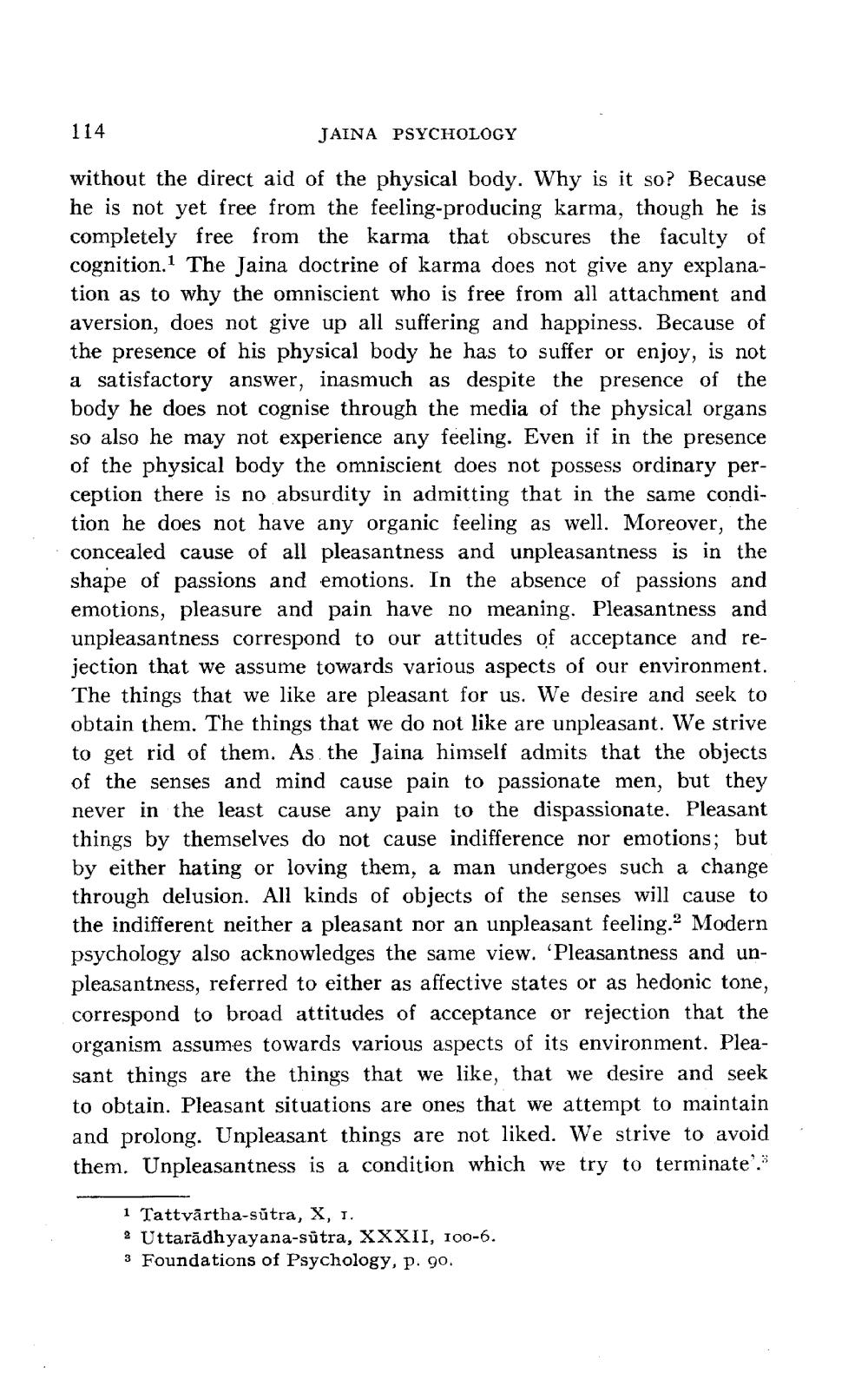________________
114
JAINA PSYCHOLOGY
without the direct aid of the physical body. Why is it so? Because he is not yet free from the feeling-producing karma, though he is completely free from the karma that obscures the faculty of cognition. The Jaina doctrine of karma does not give any explanation as to why the omniscient who is free from all attachment and aversion, does not give up all suffering and happiness. Because of the presence of his physical body he has to suffer or enjoy, is not a satisfactory answer, inasmuch as despite the presence of the body he does not cognise through the media of the physical organs so also he may not experience any feeling. Even if in the presence of the physical body the omniscient does not possess ordinary perception there is no absurdity in admitting that in the same condition he does not have any organic feeling as well. Moreover, the concealed cause of all pleasantness and unpleasantness is in the shape of passions and emotions. In the absence of passions and emotions, pleasure and pain have no meaning. Pleasantness and unpleasantness correspond to our attitudes of acceptance and rejection that we assume towards various aspects of our environment. The things that we like are pleasant for us. We desire and seek to obtain them. The things that we do not like are unpleasant. We strive to get rid of them. As the Jaina himself admits that the objects of the senses and mind cause pain to passionate men, but they never in the least cause any pain to the dispassionate. Pleasant things by themselves do not cause indifference nor emotions; but by either hating or loving them, a man undergoes such a change through delusion. All kinds of objects of the senses will cause to the indifferent neither a pleasant nor an unpleasant feeling.2 Modern psychology also acknowledges the same view. 'Pleasantness and unpleasantness, referred to either as affective states or as hedonic tone, correspond to broad attitudes of acceptance or rejection that the organism assumes towards various aspects of its environment. Pleasant things are the things that we like, that we desire and seek to obtain. Pleasant situations are ones that we attempt to maintain and prolong. Unpleasant things are not liked. We strive to avoid them. Unpleasantness is a condition which we try to terminate'."
1 Tattvärtha-sutra, X, 1.
2 Uttaradhyayana-sutra, XXXII, 100-6.
3 Foundations of Psychology, p. 90.




